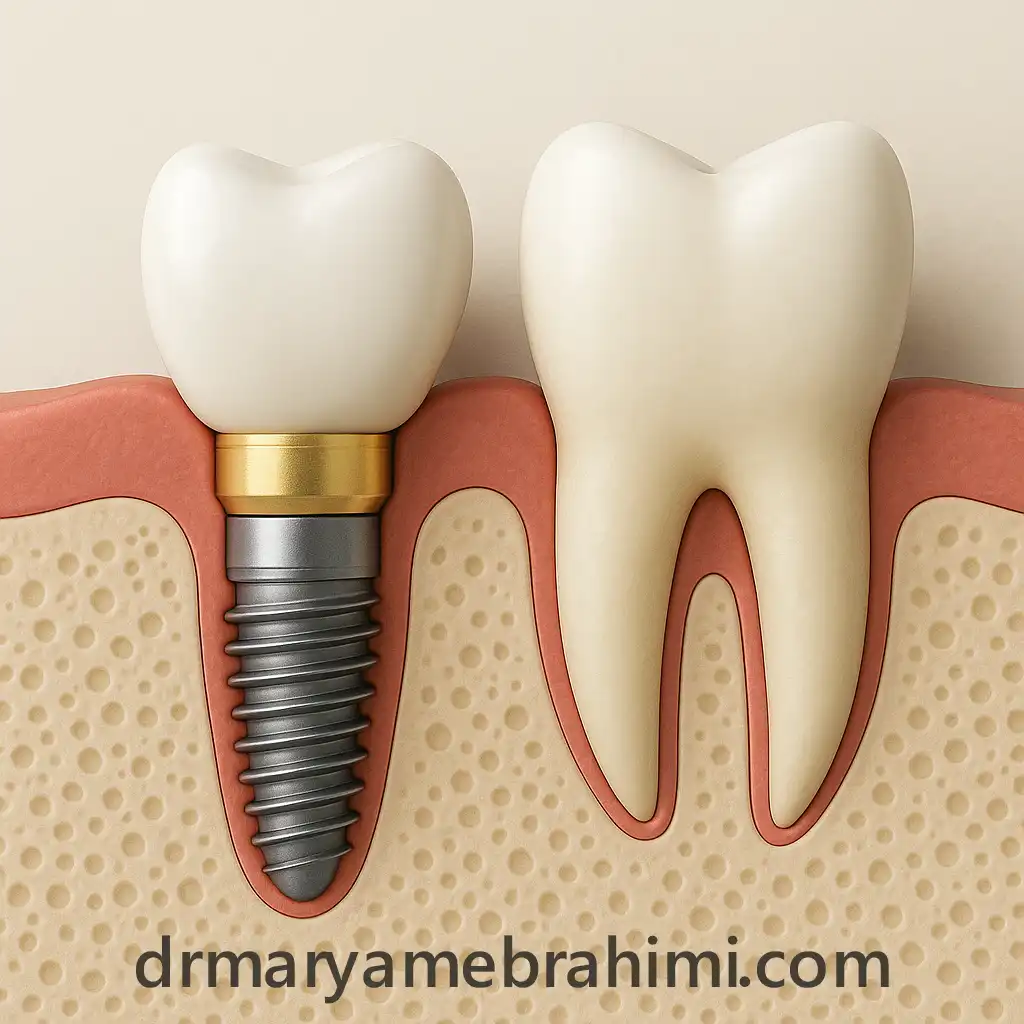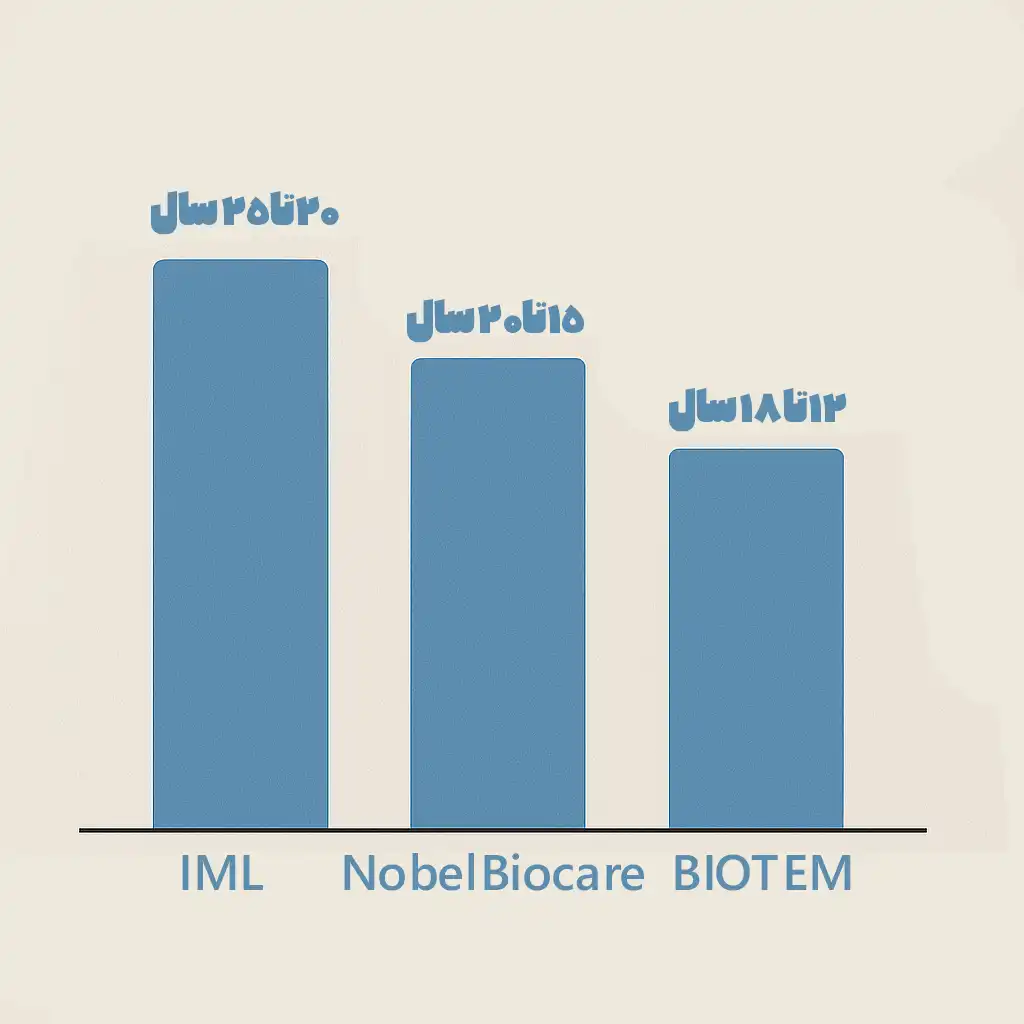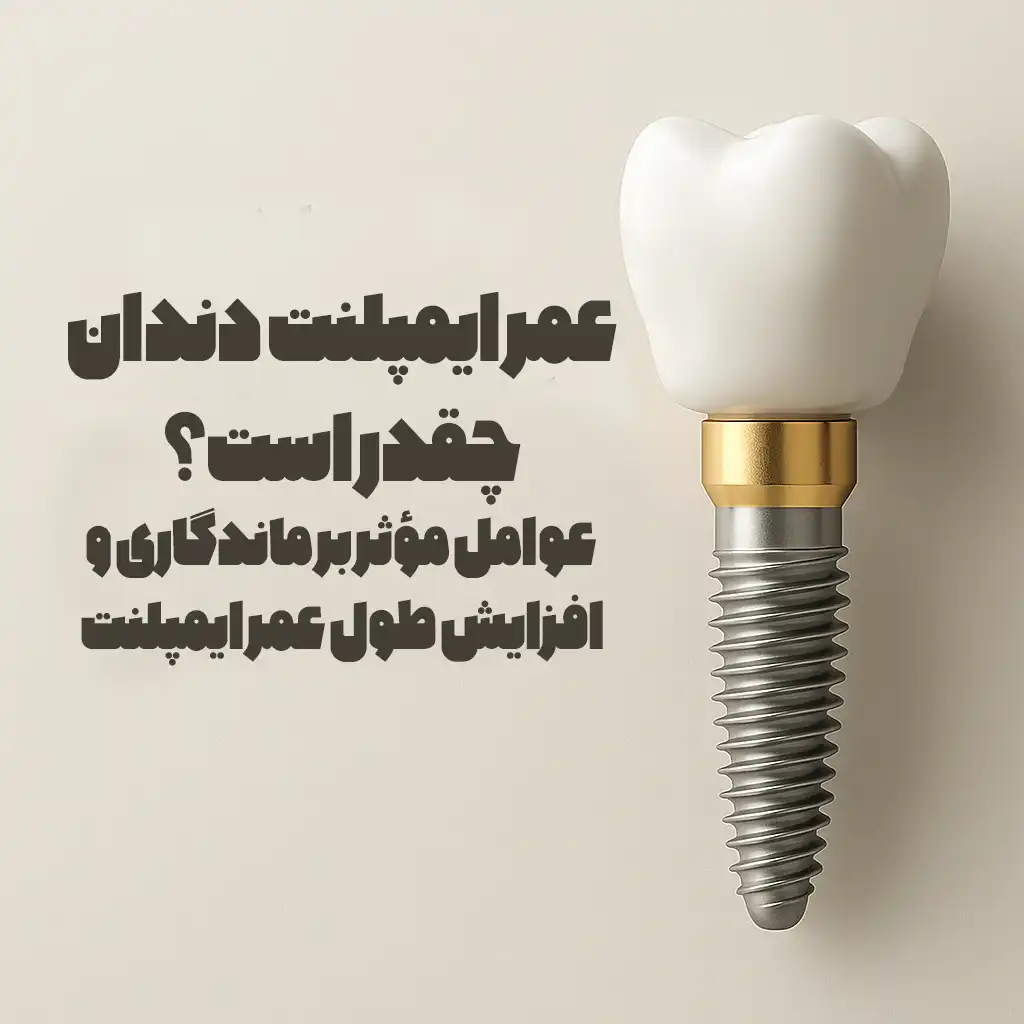Dental implants are one of the safest and most durable ways to replace missing teeth. However, one of the most common questions patients ask is, “How long do dental implants last?” The short answer is: If properly placed and cared for, they can last a
In this article, Dr. Maryam Ebrahimi, an implant and gum surgery specialist, explains everything about the lifespan of dental implants in simple but scientific language.

Average lifespan of dental implants in Iran and the world
International studies show that the average lifespan of a dental implant is between 10 and 25 years. In some patients who have regular health care and visits, this number can even exceed 30 years.
In Iran, due to differences in brands and quality of services, the average lifespan of implants under optimal conditions is estimated to be around 15 years or more.
| Implant Brand | Approximate Average Lifespan | Country of Manufacture |
|---|---|---|
| IML | 20 to 25 years | Switzerland |
| Nobel Biocare | 15 to 20 years | Sweden |
| SPI | 10 to 15 years | Switzerland |
| BIOTEM | 12 to 18 years | South Korea |
Note: Reputable brands not only use purer titanium, but they have also improved the thread design and implant surface to make osseointegration more stable.

What factors affect the durability of dental implants?
Jawbone quality
The denser and more voluminous the jawbone, the better the stability of the implant and the longer it will last. In cases where the bone has been depleted, a bone graft can provide a solid foundation.
Brand and type of implant
Not all implants are created equal. Reputable brands use biocompatible alloys and controlled surface roughness to ensure faster and stronger bone bonding.
Surgeon’s skill and implantation technique
Implant surgery is a precise process. The specialist’s experience in implant angle, drill depth, and fixture selection directly affects the longevity of the implant.
For this reason, it is recommended that this treatment be performed only by an implantologist.
Oral and dental hygiene
Brushing, flossing, and using antibacterial mouthwash are the most important factors in preventing inflammation around implants (peri-implantitis).
This complication is one of the main reasons for the reduction in implant life.
Harmful habits
Smoking, teeth grinding, and excessive consumption of acidic drinks or coffee are enemies of the longevity of implants. Nicotine constricts blood vessels in the gums and reduces oxygen flow; as a result, tissue repair will be slower.
Signs of reduced implant life or failure
If you notice any of the following symptoms, your implant may be at risk:
- Movement or loosening of the crown on the implant
- Inflammation, redness, or bleeding around the gums
- Pain when chewing or pressing
- Gum recession around the implant base
In such situations, you should immediately see a specialist to prevent the progression of inflammation and bone destruction.
Ways to extend the life of dental implants
Regular visits for annual checkups
Checking the condition of the implants and having them professionally cleaned once a year is the best way to prevent potential problems.
Maintaining meticulous oral hygiene
Using a soft toothbrush, implant-specific floss, and chlorhexidine mouthwash helps maintain gum health and prevent plaque buildup.
Proper diet
Foods that are too hard or sticky can put too much pressure on the implant. A balanced diet with enough calcium, vitamin D, and protein will help strengthen your bones.
Avoid smoking.
Cigarettes, hookahs, and even vaping can shorten the lifespan of implants. Patients who quit smoking are up to 3 times more likely to have successful implant survival.
Are dental implants lifelong?
Technically, the titanium base of the implant can remain in the jawbone for the rest of your life.
But the crown or veneer on it may need to be replaced after 10 to 15 years.
In fact, dental implants are a lifelong investment that, with proper care, never needs to be replaced.
Dr. Maryam Ebrahimi’s speech

“A dental implant, if done in a principled manner and the patient takes daily care seriously, can have a lifespan equal to that of a human being.
At our dental clinic, we always emphasize that the success of an implant is not determined only on the day of surgery, but is maintained in the following years with the cooperation of the patient.”
If you would like to check the status of your implant or seek specialized advice, you can use the online appointment section to have the condition of your jawbone and the health of your implant assessed.







